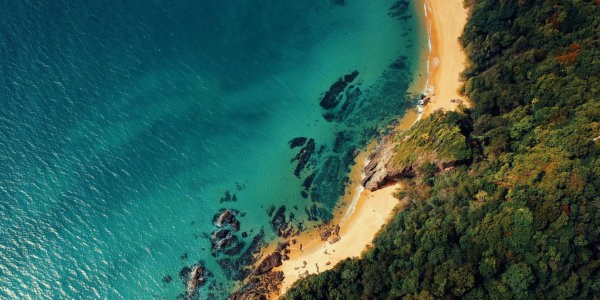Some time ago now, Borburata was known to the Swan family as a colony of half a dozen modest wooden holiday bungalows slumbering in the sun by the sea, privileged access to which was granted favoured employees from time to time by the international oil company which owned them. The company’s oil refinery faced the cottages from across a tranquil half-moon bay, an inlet in the Caribbean on the Venezuelan coast, on what used to be called the Spanish Main. The name Borburata was bizarrely anglicized by homesick Elizabethan sailors into ‘Burborough Water,’ a name reminiscent today of their homeland’s picturesque and ordered domesticity. It was an ideal location for careening ships—ridding their hulls of barnacles and sea-worms—in a sheltered setting that belied its ignominious role in the slave trade. In 1565, and then again three years later, ‘Capitan Juan Aquinez’ as John Hawkins was known by the Spanish traders then resident there, unloaded a cargo of African slaves to the undoubted profit of both parties to the transaction, if not, alas, to that of the human cargo concerned, before proceeding on his way to join his cousin Francis Drake, or ‘El Draque,’as he was known locally, in their semi-sanctioned continuing campaign of piracy against the King of Spain. Three hundred years later, the Polish adventurer Konrad Korzeniowski, better known as the English novelist Joseph Conrad, had sailed these waters as a smuggler, and set his ambitious novel Nostromo here at the turn of the previous century.
If there was a town of Borburata then or since, the Swan family knew nothing of it, as they kept to the little compound erected by the oil company for the two weeks they were allotted, having brought all their provisions from Caracas, a three-hour drive over the mountains. The identical clapboard bungalows, each with dated but serviceable furniture, a bathroom and two bedrooms, a cramped kitchen, a carport, and blinds that had to be lowered to screen the sun’s glare each long afternoon, lacked air conditioning. Vacationers had to bring their own fans and boil their own drinking water. The cottages were built on a small headland adjacent to the bay, which had once been encircled by a chain-link fence, whose remains could be seen marching out across the beach and into the sea. A gate leaning drunkenly open, half-buried in sand, marked the entrance to the compound. This was no ‘gated community.’ An ill-maintained strip of bumpy asphalt led within. Each bungalow faced a jumble of scrubby shoreline vegetation obscuring the view of the flat turquoise Caribbean beyond. Huge spreading magnolias screened vacationers from their neighbours. Behind them, beyond the bay, stretched an endless desolation of muddy marine swamp, with an occasional mangrove to relieve the dreariness.





